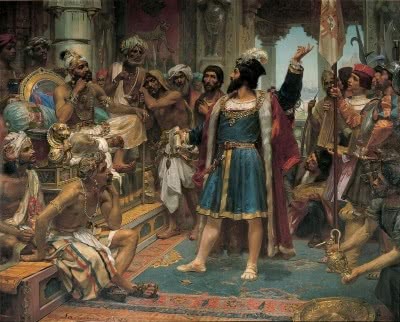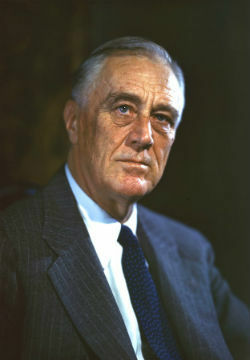Antero de Quental (1842-1891) was a poet and philosopher of Romanticism, considered one of the greatest Portuguese sonnetists.
Biography of Antero de Quental
Antero Tarquínio de Quental was born in Ponta Delgada, on the island of São Miguel, in the Archipelago of the Azores, Portugal, on April 18, 1842.
Descendant of a noble family, Antero was the son of Fernando de Quental and Ana Guilhermina da Maia. He spent his childhood and attended primary and secondary studies in his hometown, in the capital of the island of São Miguel.

At just 16 years of age, he enrolled in Law and went to study in Coimbra, where he stood out with his brilliance.
Interested in politics, philosophy and literature, Antero in 1862, at the age of 20, published his first sonnets entitled “Antero's Sonnets”.
He traveled through France, the United States and Canada, however, it was in his country that he spent most of his life dedicating himself to literature and political issues.
During his stay in Coimbra, his socialist ideas began to blossom, graduating in 1864. From 1866 onwards, he moved to Lisbon, where he participated in the founding of the Portuguese Socialist Party.
In the country's capital, he worked as a worker and editor of the magazine “O Pensamento Social”. In 1869 he founded the newspaper "A República".
Influenced by the ideas of the French philosopher Pierre-Joseph Proudhon (1809-1865) and the German philosopher Georg Wilhelm Friedrich Hegel (1770-1831), Antero de Quental was one of the introducers of socialism in Portugal.
In 1869 he moved to Porto, already suffering from tuberculosis. For medical reasons, he later moves to Vila do Conde. In 1872, he founded the "Associação Fraternidade Operária", the representative in Portugal of the 1st International Workers.
Death of Antero de Quental
Diagnosed with depression and bipolar disorder, he committed suicide in his hometown on September 11, 1891.
He fired two shots at a park bench, on which the word "Hope" is inscribed on the wall. About Antero de Quental, the Portuguese writer Eça de Queirós (1845-1900) adds: “a genius who was a saint.”
Poets of the "Geração de 70" and the Coimbrã Question
The poets of the 1870s generation formed the group of literati committed to renewing Portuguese thought.
These poets were linked to the Coimbrã Question, a literary controversy that took place in 1865 between young people at the University of Coimbra and poets friends with António Feliciano de Castilho.
Thus, Feliciano criticizes the ideas of the new Portuguese poets, centered on freedom of thought, especially Antero de Quental.
Antero was the biggest agitator of the Coimbrã Question, consecrated by the poems "Modern Odes" and the rehearsal "Common Sense and Good Taste". The latter represents the violent response given to Antônio Feliciano de Castilho.
The publication of Complete Sonnets, in 1866, with a preface by Oliveira Martins, was the work that led Antero to participate and identify even more with the ideas and values proposed by the poets of the “Geração de 70”.
This group was related to the Coimbrã Question, which intended to renew the mentality in Portugal, breaking with the values of the past and, above all, of Romanticism.
Major Works by Antero de Quental
Owner of an essentially philosophical, social, political, metaphysical and lyrical work, Antero de Quental is considered one of the greatest writers in the Portuguese language. Some of his works:
- Antero's Sonnets (1861)
- Beatrice and Fiat Lux (1863)
- Modern Odes (1865)
- Common Sense and Good Taste (1865)
- The Dignity of Letters and Official Literatures (1865)
- Defense of the Encyclical Letter of His Holiness Pius IX (1865)
- Portugal before the Spanish Revolution (1868)
- Romantic Springs (1872)
- Considerations on the Philosophy of Portuguese Literary History (1872)
- Poetry in the Present (1881)
- The Naturalists' Philosophy of Nature (1884)
- Complete Sonnets (1886)
- Naturists' Philosophy of Nature (1886)
- General Trends in Philosophy in the Second Half of the Nineteenth Century (1890)
- Rays of extinct light (1892)
Antero de Quental's Sonnets
To get to know his language better, below are three Sonnets of the Portuguese poet:
logos
(To Mr. D. Nicolas Salmeron)
You, who I don't see, and you're standing next to me
And, what's more, inside me — that surrounds me
With a nimbus of affect and ideas,
Which are my beginning, middle and end...
How strange are you to be (if you are to be)
snatch me with you and walk me
In unnamed regions, flooded
Of enchantment and dread... of no and yes...
You're just a reflection of my soul,
And instead of facing you with a calm forehead,
I'm startled to see you, and I tremble and exhort you...
Talk to you, shut up... callus, and come attentive...
You're a father, a brother, and it's a torment
Having you by my side... you are a tyranno, and I adore you!
Transcendentalism
(J. P. Oliveira Martins)
Now, after so much struggle,
Let my heart rest in peace.
At last, how vain is it?
The good that the World and Luck is disputed.
Penetrating, with a not dry forehead,
In the tabernacle of the temple of Illusion,
I just found, with pain and confusion,
Darkness and dust, a raw material...
It's not in the wide world — at least
May he look like our youth —
May the soul satisfy its intense desire...
In the sphere of the invisible, the intangible,
About deserts, vacuum, solitude,
Fly and hover the impassible spirit!
to a poet
You who sleep, serene spirit,
Placed in the shadow of secular cedars,
Like a Levite in the shade of the altars,
Away from the struggle and the earthly noise.
Wake up! It's time! The sun, already high and full
It chased away the tomb larvae...
To emerge from the bosom of these seas
A new world awaits just a nod...
Listening! It is the great voice of the crowds!
They are your brothers, who rise! They are songs...
But of war... and they are voices of rebuttal!
Arise then, soldier of the Future,
And from the light rays of pure dream,
Dreamer, make combat sword!



